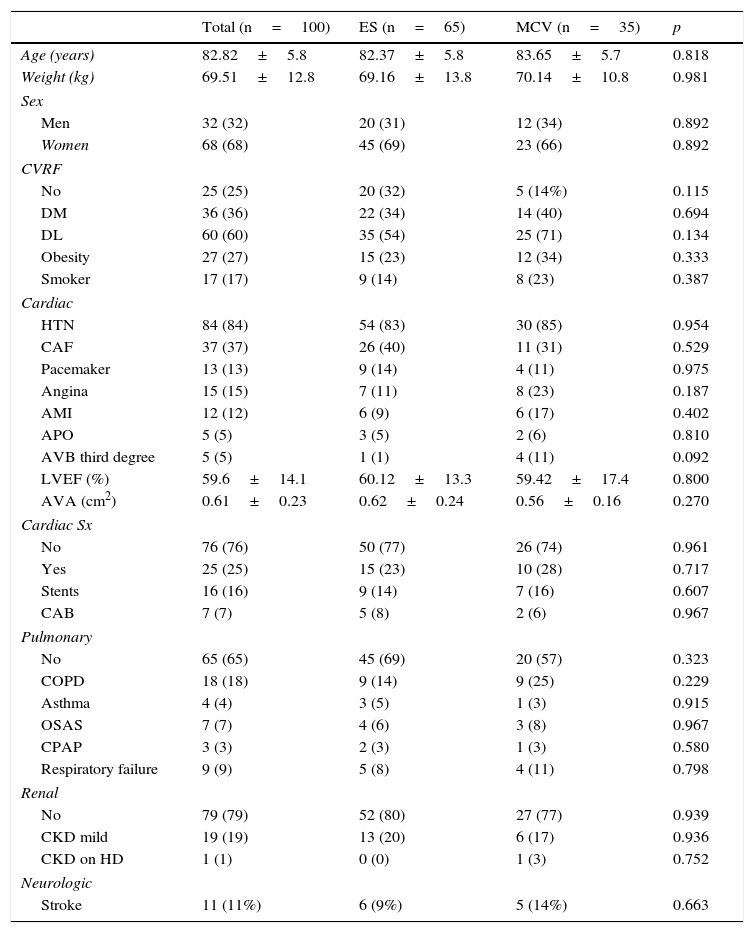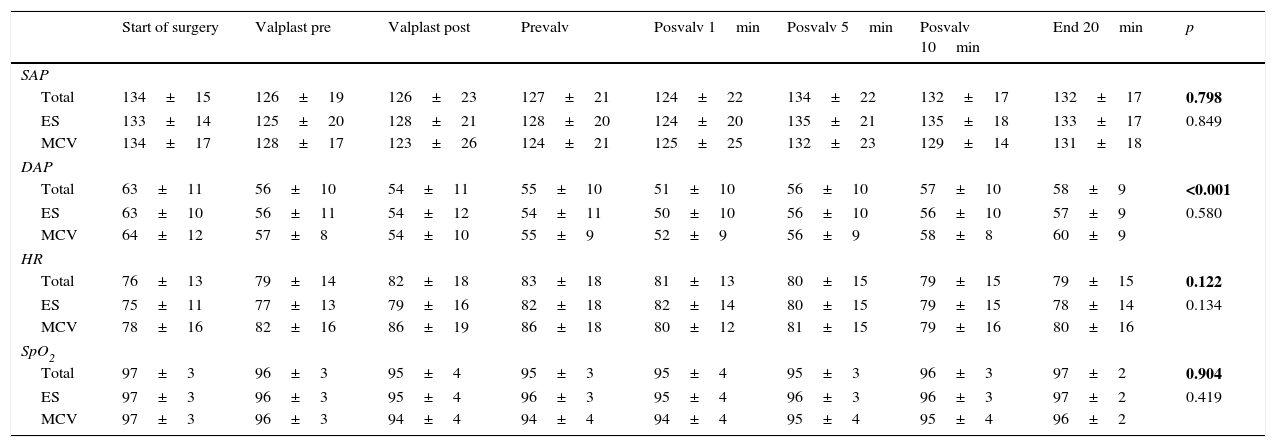Transfemoral transcatheter aortic-valve implantation represents a therapeutic alternative for patients with severe aortic stenosis who cannot undergo surgery due to high surgical risk.
ObjectiveThe aim of this study is to describe the anaesthetic procedure for transfemoral transcatheter aortic-valve implantation and the results on 100 patients with symptomatic severe aortic stenosis.
Material and methodsA series of cases are presented with prospective data collected on 100 consecutive patients. The anaesthetic procedure consisted of continuous remifentanil and propofol infusions, for sedation or general anaesthetic.
ResultsAlmost two-thirds (65%) of the cases ended on sedation, and 35% on general anaesthetic (19% out of this total were elective and 16% were due to complications during the procedure). Complications occurred in 34% of the cases, with both vascular and complete atrioventricular block being the most frequent. Mortality within the first 24h was 5%.
ConclusionsImplantation of transfemoral aortic prosthesis under remifentanil-propofol sedation can be considered a valid therapeutic alternative for patients with severe symptomatic aortic stenosis, and with a high surgical risk, and therefore not considered for conventional surgery.
La implantación de una prótesis aórtica por vía transfemoral representa una alternativa terapéutica en pacientes con estenosis aórtica severa desestimados para cirugía por elevado riesgo quirúrgico.
ObjetivoDescribir el manejo anestésico para prótesis aórtica por vía transfemoral y los resultados en 100 pacientes con estenosis aórtica severa.
Material y métodosPresentamos una serie de 100 casos consecutivos recogidos de forma prospectiva. El manejo anestésico se realiza con perfusión continua de remifentanilo y propofol, para sedación o anestesia general.
ResultadosEl 65% de los casos se culmina con sedación y el 35% con anestesia general (el 19% del total de forma electiva y el 16% del total por complicaciones ocurridas durante el procedimiento). Ocurren complicaciones en el 34% de los casos, siendo más frecuentes las de origen vascular y el bloqueo auriculoventricular completo. La mortalidad en las primeras 24h es del 5%.
ConclusionesLa prótesis aórtica por vía transfemoral bajo sedación con remifentanilo-propofol puede considerarse una alternativa terapéutica válida para pacientes con estenosis aórtica severa sintomática, con elevado riesgo quirúrgico, desestimados para cirugía convencional.
Artículo
Comprando el artículo el PDF del mismo podrá ser descargado
Precio 19,34 €
Comprar ahora











